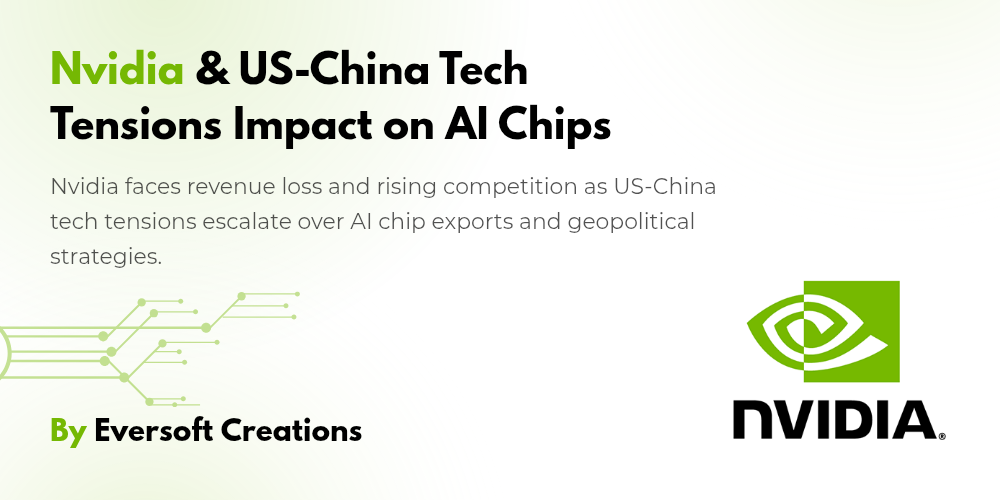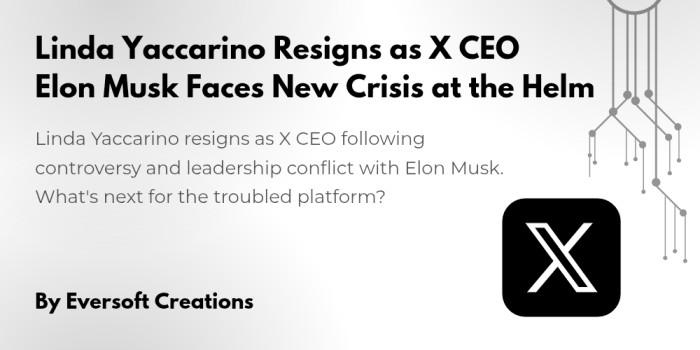Nvidia China tech tensionsIntroduction
Nvidia is a giant in the fast-changing fields of artificial intelligence (AI) and semiconductors. The company is celebrated for its powerful GPUs used in gaming, data centers and training AI models which has made it an important player around the world. At the same time, Nvidia must deal with the worsening competition between the United States and China in technology which could change the future of advanced computing.
This blog focuses on how Nvidia copes with recent geopolitical tensions, the effects on AI chips and how countries are changing their ways in the ongoing digital Cold War.
Understanding the US-China Tech Tensions
For a long time, the US and China have been heading to an inevitable showdown in the world of technology. The main worries are about national security, being ahead in new technologies and leading key supply chains. In recent years, the United States started putting limits on exports that might help China obtain high-performance computing technology useful for military or surveillance activities.
AI chips and semiconductor manufacturing equipment exports were more tightly controlled by the Biden administration in 2022 and 2023. Because of these actions, businesses with a big presence in China, like Nvidia, suffered the consequences.
Nvidia’s AI Chips and Their Strategic Importance
AI applications require the most powerful GPUs available and among them are Nvidia’s A100, H100 and the newly introduced H20. Such machines help leading firms, research bodies and governments develop complicated systems and allow innovations in autonomous cars, robotics and health care worldwide.
The Chinese market has been especially important for Nvidia because of its rising AI sector. Prior to the export limits, Nvidia’s global revenue was made up of about 26% from sales in China. Trade policies greatly influenced the situation because the figure fell to 17% by FY 2024.
US Export Controls: The Turning Point
In October 2023, the U.S. Commerce Department announced new rules on the sale of advanced AI chips to China which became the turning point in this story. Nvidia rapidly introduced chips that met export laws, for example the H800 and A800, yet these were still investigated.
Later on, the H20 chip which was created for China, was also placed under an export ban. Nvidia lost billions in possible earnings from these incidents and the U.S. actions signaled that it wants to limit China’s development in AI.
China’s Response: Antitrust Investigation and Domestic Push
China has taken steps to deal with the problem. Near the end of 2024, the Chinese government initiated an antitrust review of Nvidia’s 2020 purchase of Mellanox Technologies which is an Israeli networking company. Some details are missing, but people generally view this as a reaction to the ongoing tech dispute.
China has also made a special effort to grow domestic alternatives. Firms such as Huawei and Baidu are designing their own AI chips and the government has raised funding for research into semiconductors. Such rules may actually push China to become more independent in chip technology.
Financial Impact on Nvidia
Nvidia has suffered major financial troubles. The business was expecting a $5.5 billion loss in revenue because of the export bans. While AI chip demand is high around the world, especially in the U.S. and Europe, not being able to access China as a market creates long-term risks.
Besides, Nvidia’s stock has seen ups and downs and investors are concerned that ongoing trade issues could slow down the company’s progress. Nvidia is having continued success, especially due to strong demand for its chips from data centers and industries focused on AI.
Jensen Huang’s Warning and the Bigger Picture
Jensen Huang, the CEO of Nvidia, has voiced doubts that the U.S. approach will succeed. In his opinion, limiting AI chip shipments to China might result in the country putting more resources into local development, making a tough competitor arise.
Huang said at a summit: “If we cannot supply them, they will create it themselves instead.” This way of thinking highlights how important it is to balance security concerns with allowing open innovation.
Global Implications for AI Development
Nvidia is key to the US-China tech conflict which matters far more than just the trade between these countries. It might result in the AI world being divided into regions where U.S. firms lead and Chinese firms lead, respectively.
As a result, international collaboration in science might slow down, companies faced with additional costs and some developing economies might miss out on advances in AI.
What Lies Ahead for Nvidia and the Industry?
Nvidia continues to do well in the tech world in spite of difficulties. It is developing in parts of the world without obstacles and working on new products. It is starting to include AI-related software, tools and services more in its business.
AMD and Intel and other chip manufacturers, keep a close eye as geopolitics may affect their businesses. At the same time, global leaders are paying more attention to the relevance of semiconductors and are backing domestic chip factories, for example the CHIPS Act in the U.S. and the semiconductor plan in Europe.
Conclusion
Because of Nvidia’s situation in the U.S.-China tech war, it is now clear that technology development is being strongly influenced by political matters. Because governments are taking more control over critical industries, Nvidia and similar companies need to adjust quickly to new regulations while trying to stay ahead in their market.
How this wave of tech nationalism influences new technological advancements and relationships between countries is hard to predict. However, we cannot miss the fact that today’s actions will affect AI and computing far into the future.
Visit Eversoft Creations more reports about Nvidia, AI and the international tech sector in this space.



